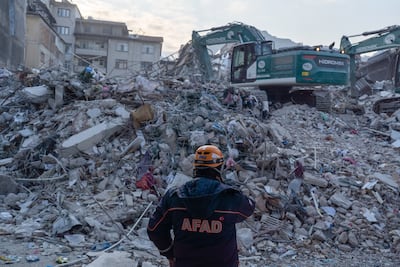Disaster struck in the early hours of last Monday. A series of large earthquakes razed to the ground more than 6,000 buildings in the south-east of Turkey. Once the total number of casualties is known, this disaster is likely to rank among the deadliest earthquakes of the century. It is important, therefore, to assess the effectiveness of the Turkish government’s response to this disaster, but possibly even more importantly, to understand whether this calamity could have been avoided.
Since the early hours of the earthquake, Turkish government agencies and civil society have mobilised for the relief efforts. The international community has also moved rapidly with, at the last count, a hundred countries sending relief teams or disaster assistance to the region. This list of countries includes Greece, Armenia and Israel, raising hopes that this tragedy could unleash a wave of diplomatic rapprochement. And yet, with an affected geography spanning 450 kilometres, including 11 provinces with a total population of 15 million, the effort inevitably remains incommensurate with the size of the challenge. As a result, there is heavy criticism on the ground for the inadequacy of the state response. Most critically, in the first 24 hours, efforts relied mostly on AFAD, the civilian disaster response agency. But AFAD was unable to move rapidly to a system of decentralised decision making and co-ordination that would have allowed other actors such as the army of volunteers or the international teams to contribute more rapidly to ongoing rescue operations. In addition, the capacity of the country’s large-scale and well-endowed military was not put to effective use in a timely manner. Turkey’s thorny history of civil-military relations has come to haunt the relief response.

Now with hopes dimming every passing hour for saving more people under the rubble, the challenge will be equally enormous. Turkey will need to cater to the immediate needs of, at the very least, hundreds of thousands of people who have been left homeless and without shelter. Even if their homes are still standing, it is very doubtful if they can return with the risks of aftershocks. Given the level of destruction of the overall infrastructure and the physical capacity to deliver core health and transport services, a return to normality in the distressed regions is, at best, months away. Turkish President Recep Tayyip Erdogan promised, for instance, the construction of permanent housing for all the internally displaced within a year.
Going forward, it will be necessary to ask whether Turkey could have avoided this catastrophe. And the response has to be an unambivalent “yes”. There are other countries in the world such as Japan that sit, just like Turkey, on critical fault lines. They also experience large-scale earthquakes. But unlike Turkey, their social contract has generated an effective response to the risk of natural disaster. Large-scale earthquakes in those countries do not lead to similar human losses. In return, Turkey has most tragically failed to emulate these countries in terms of the necessary reforms that would have enhanced resilience to natural disasters.

On the contrary, since the transition to parliamentary democracy in 1946, society has incentivised governments to lower construction costs – and thus lower standards. In that period, governments passed 22 different bills to grant amnesties to informal buildings. In the last decade, under AK Party rule, 10 such laws have been adopted. Before tragedy struck, there was even a new initiative to promulgate yet another amnesty ahead of the critical elections this year. These amnesties, seen as populist measures, have created perverse incentives. Not only do they allow sub-standard constructions to be legalised, but they also motivate builders to continue to build them in that way knowing that with time, their constructions will in any case be licensed by way of a new amnesty. And yet, this crowd pleaser has now turned into a crowd killer. Many of the people who perished in last week’s earthquake lived in homes that did not conform to the stringent building regulations.
With the ever-growing risk, according to geologists, that a major earthquake is expected in Istanbul, the economic, industrial and cultural capital of the country, Turkey cannot anymore afford this warped version of its social contract. The hope is that this tragedy can finally change attitudes and raise awareness about change. In that sense, the nearness of the election date is possibly a good thing. The national debate will now necessarily shift to the issue of disaster management. And the outcome of this closely contested race will now be determined, in all likelihood, by whether the governing side led by Mr Erdogan’s AK Party or the main opposition led by Kemal Kilicdaroglu’s CHP will ultimately convince the electorate that they have a better plan to save Turkey from its next tragedy.




























































